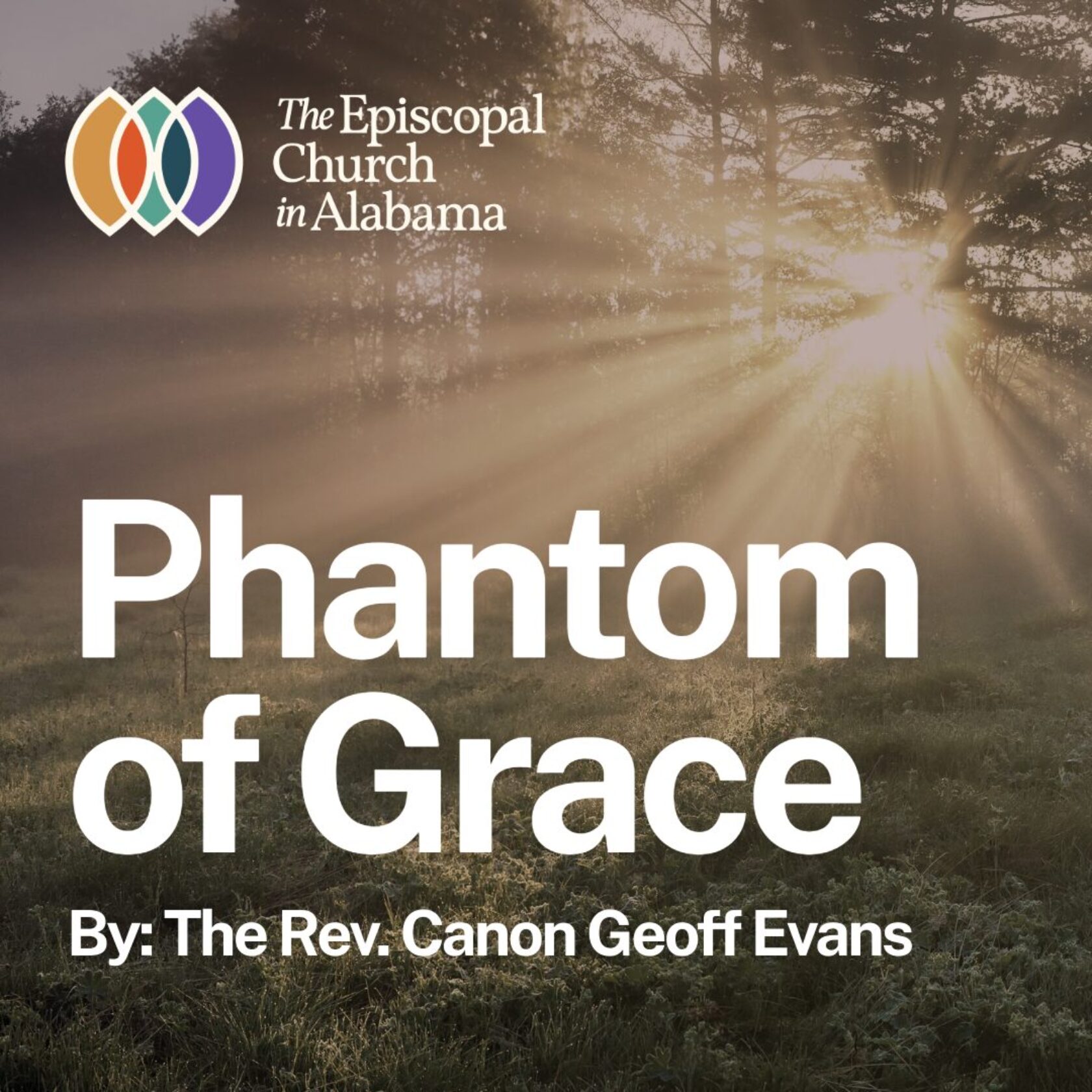
Phantom of Grace - By The Rev. Canon Geoff Evans

Can we live without grace? What does the absence of grace tell us about the presence of grace?
Years ago, an acquaintance asked me to coffee. I knew this guy to be a leader in the community and a thoughtful person. He and his wife recently welcomed their first child into the world. He wanted to meet with me because becoming a parent had unsettled his worldview. He said that he was an atheist, but all of a sudden, he wasn’t so sure about things. He was clear that he wasn’t becoming a Christian and wasn’t going to start coming to my church, but he thought I might be up for a conversation. I listened and he told me the story of his intellectual journey. Toward the end of the conversation, I said casually, “I think you’re having a crisis of doubt.” He laughed out loud. He recognized himself.
We both moved away a few years after that conversation, and we weren’t close enough to keep in touch. But I kept thinking of him recently while reading The Passenger, by Cormac McCarthy. Perhaps best known for No Country for Old Men, McCarthy writes brutal and deeply philosophical stories that dramatize the spiritual experience of life in our time. The Passenger, published a year before his passing in 2023, raises these types of questions: Can we live without grace? What does the absence of grace tell us about the presence of grace?
The main character in The Passenger is Bobby Western. Western is a salvage diver, and early in the story, he is called out in the middle of the night to a plane crash in the Gulf of Mexico. As Western makes his way by boat to the crash site, “an antique schooner” passes by and catches his attention. The narrator describes this old boat as a “phantom of grace.”
As the story develops, we see how Western inhabits a secularized and disenchanted world. But, he isn’t happy about it. This is the pain at the heart of the book. Western doesn’t believe in God or that there is anything beyond this world, but he can’t rid himself of a longing for something beautiful and good. His longing is evidence that, even in this bleak and often bewildering narrative, there are unexpected and beautiful manifestations of grace.
McCarthy was famous for his peculiar lexicon, which is challenging for any reader. It sometimes feels like you need a dictionary and ChatGPT at hand in order to follow him. McCarthy’s style invites imitation. For example, Eli Cash from Wes Anderson’s Royal Tennenbaums is a gentle satire of McCarthy particularly when Cash reads a selection of his writing: “‘Vámonos, amigos,’ he whispered, and threw the busted leather flint craw over the loose weave of the saddlecock. And they rode on in the friscalating dusklight.” Words like “flintcraw,” “saddlecock’ and “friscalating” are the kinds of obscure and arcane words that McCarthy loves to use. Given McCarthy’s style, we can be sure that “phantom” and “grace” are words carefully chosen.
A phantom is an entity that is beyond physical representation. It is both present and absent. A phantom is also unsettling, even dreadful, like Hamlet’s father or Banquo’s ghost in Macbeth. Phantoms are reminders of something which has gone away but that won’t stay gone. A phantom is a present absence.
Grace is God’s unmerited and unearned favor. It comes from outside of ourselves, our world, and the here and now. Grace comes to us unbidden. It is not something that we can conjure or muster. Grace visits us because of God’s appointment.
The Passenger is both deeply philosophical and subtly theological. It aptly dramatizes the experience of the contemporary Western (great name, right!?) world. We exist in what Charles Taylor describes as “our secular age,” which is a materialistic and disenchanted age that assumes the here and now is all there is. And yet (if we’re honest), we are not satisfied with this state of things. We long for something else and something more. We simply cannot accept a world that is devoid of grace.
The Passenger, with its weirdness and brutality, can help us empathize and connect with our time and the struggles in our own minds and the minds of the people we know and love. In this secular age, not only do people struggle to trust that God loves them, they also struggle to conceive that divine love is even possible. For many people (and me too), the world can seem spiritually flat and sealed off from the transcendent. McCarthy brilliantly dramatizes the fact that no one is truly happy about this. Everyone longs for the ineffable, the transcendent, and the beautiful. Whether crystals, ayahuasca, or aliens, there is evidence all around us of people searching for something good and beautiful beyond our everyday experience.
For modern people like Bobby Western, the starting place for faith is dissatisfaction with the status quo. As I read the book and thought about my friend, I wondered if the starting point of faith is dissatisfaction with a world absent from grace. Maybe grace is most powerfully perceived when it is threatened with exclusion. The light really does shine in the darkness. I’m reminded about what a powerful mission we have, which is beyond strong arguments or flashy programs, but rather a steadfast commitment to a heavenly realm of grace that is beyond but is always breaking into our everyday existence. Christians are people who hope and expect to be visited by phantoms of grace.